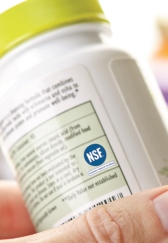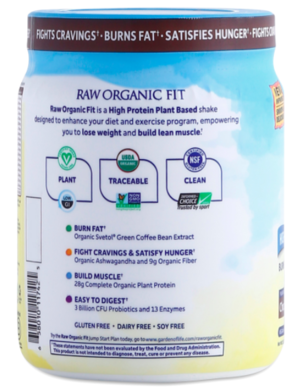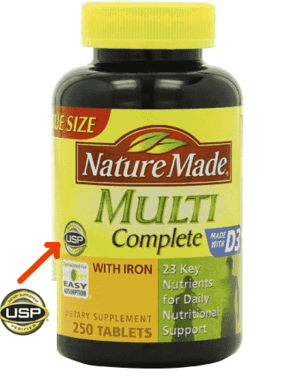Whether or not they realize it, most athletes incorporate at least one supplement into their diet. Supplement regulation is a bit confusing, and there are absolutely potential risks with using them. Get in the know.
Questions regarding supplements are some of the most common nutrition questions I receive. Unfortunately, the benefits of many supplements are over-hyped, over-priced, can pose risk for an athlete to accidental doping, and can be potentially unsafe. Does that seem a little too negative? If if I had one dollar for the number of times I’ve worked with a client who was either taking a supplement that interfered with one of their prescribed medications, over-using a supplement, or taking a completely unnecessary (and expensive) supplement, I could fund a monthly massage appointment. Here’s the low-down:
What Is A Supplement?
US Food and Drug Administration (FDA) definition:
“A product (other than tobacco) intended to supplement the diet that bears or contains one or more of the following dietary ingredients: a vitamin; a mineral; an herb or other botanical; an amino acid; a dietary substance for use by man to supplement the diet by increasing the total dietary intake; or a concentrate, metabolite, constituent, extract, or combination of any ingredient described previously.”(1)
Note that supplements don’t have to come in pill form – powders, drinks, and bars can all fit into this category! Infusions (yes, administration by vein or muscle) can also qualify as supplements.(2) Generally, nutritional supplements can be organized into three groups:(3)
1. Dietary Supplements: Products containing one or more vitamins, minerals, or bioactives such as fatty acids or other nutritional extracts. Function: Prevent or treat nutrient deficiencies.
2. Sports Nutrition Products: These typically contain calories or electrolytes such as sports drinks, recovery drinks, and protein bars. Function: Training adaptation and recovery through a practical and/or convenient alternative to regular food.
3. Ergogenic Aids: A physical, mechanical, nutritional, psychological, or pharmacological substance such as caffeine and creatine. Function: Improve performance.
Confusion Regarding Supplement Definition
Sports-focused food is a huge market, making it confusing to determine where food ends and supplements begin. When thinking of the function of sports foods versus supplements, sports foods could be considered foods that contain nutrients in the amounts found in everyday foods, while a supplement might contain a nutrient(s) in very high amounts.(2) However, there is no clear-cut definition to distinguish a supplement from a sports food. One review suggests, “the definitions differ between countries according to the way that food and pharmaceutical products are regulated…we consider sports foods to be energy-containing products manufactured in a food-like form (e.g. bars, drinks, gels, or modified versions of everyday foods).”(2)
An example of a sports food could be a clif bar, which contains many added vitamins and minerals, whereas a multivitamin would be considered a supplement. Protein powders are considered supplements because they are a concentrate or isolate.
The dangers of supplements can come from how they are regulated in the United States.
How Are Medications Regulated?
In the United States the Food and Drug Administration (FDA) regulate supplements. However, supplements aren’t as stringently regulated as medications. A medication must be evaluated for safety and efficacy before being released to the public. This is a huge undertaking and includes lab and animal tests. Before a company can even move from lab and animal models to test on humans, the company must submit an Investigational New Drug Application (IND) for FDA’s review to get approval to do so. After a few phases of clinical trials, the company submits data from the trials to the FDA’s Center for Drug Evaluation and Research (CDER) in a New Drug Application (NDA), which is a team of physicians, statisticians, toxicologists, pharmacologists, chemists, and others to review the drug. This takes many years for most medications to become available to the public.(1)
Once the drug goes to market, the FDA’s involvement doesn’t stop there. The FDA monitors its performance including safety information such as side effects, adverse event reporting, etc.(1)
Take Away?
Medications must be pre-approved after safety tests before goiong to market.
How Are Supplements Regulated?
Manufacturers of dietary supplements are not required to obtain pre-market approval from the FDA. In fact, supplement manufacturers are responsible for testing and evaluating their own products for safety and appropriate labeling.
- Supplements are actually regulated under the Dietary Supplement Health and Education Act (DSHEA):
- It doesn’t require that a company register its supplement with any agency.
- It restrains the Drug Enforcement Agency (DEA) and DSHEA from using regulatory authority over supplements.
- Supplements do not need proof of safety and efficacy before going to market.
- Supplements containing a new dietary ingredient must notify the FDA at least 75 days before selling the product, but if the company fails to register the product, it can still make it to shelves before being pulled.
- There are no standardized labeling requirements for supplements.(1)
Take Away?
Supplements are not as stringently regulated as medications by the FDA.
What Risks Does This Pose To The Consumer?
Supplements can contain ingredients that are not listed on the label: Multiple studies have tested supplements to identify present compounds compared to the ingredients list/label and found compounds not listed on the label that would lead to a positive doping test. The Medical Commission of the International Olympic Committee conducted one of these studies in 2004. The organization tested 634 non-hormonal supplements from 13 countries and found that 14.8% of them contained compounds not listed on the label that would lead to a positive doping test.(4) Year 2007 in the United States, HFL Sports found 13 of 52 tested supplements from various US retailers contained small amounts of steroids, and 6 had banned stimulants. (5)
Supplements can have confusing and inaccurate labels: Have you ever become confused while reading a supplement label? Yeah, me too! Some supplement companies use outdated chemistry nomenclature to confuse consumers and regulators. Supplements can also list compounds that don’t even exist. This makes it very difficult for consumers to read and evaluate labels.
Supplements can contain toxic amounts of compounds: If you’re still reading, you might think I’m exaggerating these claims. I would like to think that this does not happen often, but there are absolutely supplements in the United States that have been pulled due to poisoning consumers. This can occur because there is no limitation on the amount of compound in an extract or concentrate. This poses risk for toxicity.
Supplements can result in intentional or accidental doping for collegiate and elite athletes: It’s the job of every collegiate and professional athlete to stay up to date on the banned substances list published each year by the United States Anti-Doping Agency (USADA). Accidental dopings are inexcusable. Do you remember the 2016 Maria Sharapova doping debacle? A medication she was taking for the past 12 years (legally) was added to the January 1, 2016 banned list. She failed to review the updated list, resulting in an unexpected failed drug test! Yikes! She was banned from professional tennis for 2 years. This ban has since been reduced to 15 months, but it’s a nightmare either way. Many collegiate athletes have access to an on-campus sports dietitian, so I recommend inquiring about any supplements one is currently taking or considering purchasing.
So, How Do You Find A Safe Supplement?
There are multiple independent testing agencies that test supplements for identity, (does the product’s contents match the label?), potency (does the product contain the amount of the ingredient listed on the label?), and bioavailability (does the product break down appropriately in the body for use?). Supplements who pass these agencies’ tests may bear the agency’s seal of approval on the product.
I recommend checking the supplement label for approval from one of the following testing agencies:
- ConsumerLab: www.consumerlab.com
- United States Pharmacopeia: www.usp.org/USPVerified/dietarySupplements
Supplements are definitely warranted when there is a deficiency present. And by no means am I strictly anti-supplement in other instances, one just needs to understand the rationale behind the use of specific supplements, especially when most are so expensive. Look out for our next post about a supplement I actually recommend for most people.
Sources
1. www.fda.gov
2. Burke LM, Cato L. Supplements and sports foods. In: Burke LM, Deakin V, ed. Clinical Sports Nutrition. 5th ed. Sydney, Australia: McGraw-Hill Australia; 2015:493-591
3. Burke LM, Castell LM, Stear SJ. BJSM reviews:A-Z of supplements: dietary supplements, sports nutrition foods and ergogenic aids for health and performance. Part 1. BrJ Sports Med. 2009;43:728-729.
The below sources were referenced from the Dietary Supplement Evaluation by Ellen Coleman, MA, MPH, RD, CSSD for the Sports, Cardiovascular, and Wellness Nutrition:
4. Geyer H, Parr MK, Mareck U, et al. Analysis of non-hormonal nutritional supplements for anabolic-androgenic steroids – results of an international study. Int J Sports Med. 2004;25:124-129.
5. Judkins C, Hall D, Hoffman K. Investigation into supplement contamination levels in the US market. HFL. 2007. www.usatoday.com/sports/hfl-supplement-research-report.pdf






